2025 Annual Conference: Law, Health Care, and the Aging Brain and Body
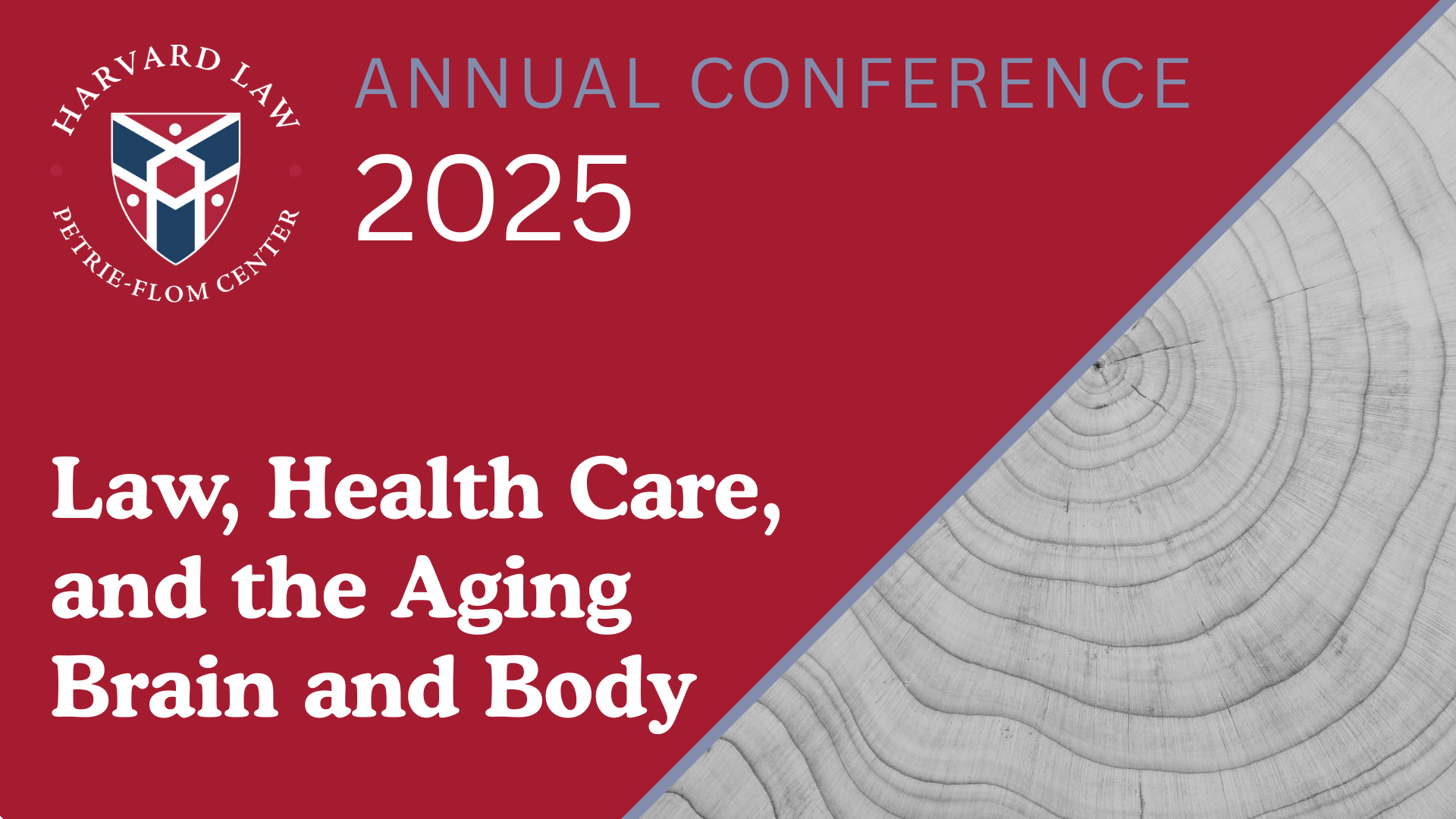
The Petrie-Flom Center for Health Law Policy, Biotechnology, and Bioethics at Harvard Law School is pleased to announce our 2025 annual conference: “Law, Health Care, and the Aging Brain and Body.” This year’s conference is organized by the Petrie-Flom Center in collaboration with Nina A. Kohn, the David M. Levy Professor of Law at Syracuse University College of Law and the Solomon Center Distinguished Scholar in Elder Law with the Solomon Center for Health Law and Policy at Yale Law School and Francis X. Shen, Professor of Law, Solly Robbins Distinguished Research Fellow, and Faculty Member in the Graduate Program in Neuroscience at the University of Minnesota.
As people around the world live longer, existing systems for supporting older adults are facing increased stress. Social safety net programs face growing costs, family caregivers find themselves simultaneously caring for multiple generations, and health care systems face patients with increased complexity. Health care systems and political structures will need to adapt to this new reality. Current legal, policy, and regulatory approaches seem poorly matched to address these emerging issues.
Fortunately, new scientific understanding of the aging brain and body can guide lawmakers, health care professionals, and families as they respond to the challenges and opportunities posed by increased longevity.
This conference calls on participants to imagine how law, public policy, and health care entities can create systems that promote the well-being of older adults and their families in a world of enhanced longevity, and to suggest what lessons can be drawn from emerging scientific understandings of the aging brain and body.
The conference panels were live-streamed for the general public
Recording
Agenda
9–9:10 a.m.
Opening Remarks
I. Glenn Cohen, Petrie-Flom Center Faculty Director, James A. Attwood and Leslie Williams Professor of Law, and Deputy Dean, Harvard Law School
Nina Kohn, David M. Levy Professor of Law, Syracuse University College of Law; Distinguished Scholar in Elder Law, Solomon Center for Health Law & Politics
Francis X. Shen, Professor of Law, University of Minnesota; Member, Harvard Medical School Center for Bioethics; Founding Director, Dana Foundation Career Network in Neuroscience & Society; Former Petrie-Flom Senior Fellow, Project on Law and Applied Neuroscience
Susannah Baruch, Executive Director, Petrie-Flom Center for Health Law Policy, Biotechnology, and Bioethics
9:10–10:45 a.m. | panel 1
Decision-Making, Agency, and Capacity
A National Study Comparing Health Care Decisions Legislation and Evolving Scientific Understandings of Agency and Capacity
Jessica Brock, Senior Attorney & Chief Counsel, American Bar Association Commission on Law and Aging
Erica Costello, Associate Director, American Bar Association Commission on Law and Aging
Decision-making by, with and for people with aged dementia – Australian laws bridging the divide between supported and substitute decision-making across regulatory systems
Julia Duffy, Research Fellow, Australian Centre for Health Law Research, School of Law; Faculty of Business & Law, Queensland University of Technology
Shih-Ning Then, Professor, School of Law and Faculty of Business & Law, Queensland University of Technology
The Disconnected Mind: How the Research of Financial Decision Making in Older Age Informs Legal Considerations of Undue Influence
Duke Han, PhD, Professor of Psychology, Family Medicine, Neurology, and Gerontology, University of Southern California; Director, Han Research Lab; Board Certified Clinical Neuropsychologist; Fellow, American Psychological Association Fellow, National Academy of Neuropsychology
Designing a Statute to Enable Individualized Decision-making in and with Dementias
Leslie Francis, Professor, University of Utah
Michael Ashley Stein, Visiting Professor, Harvard Law School; Executive Director, Harvard Law School Project on Disability (HPOD)
Recognizing a Right to Delegated Decision-Making for Older Persons: How to Build on the Human Rights Protections in the United Nations Convention on the Rights of Persons with Disabilities
Hezzy Smith, Director of Advocacy Initiatives, Harvard Law School Project on Disability (HPOD)
Moderator: Nina Kohn, David M. Levy Professor of Law, Syracuse University College of Law; Distinguished Scholar in Elder Law, Solomon Center for Health Law & Politics
10:45–11:15 a.m.
Break
11:15 a.m.–12:50 p.m. | panel 2
Payment, Delivery, and Emerging Issues in Clinical Care
Biological age: Exploring Ethical and Legal Issues Linked to its use in the Clinical Context
Alessandro Blasimme, Lecturer, Department of Health Sciences and Technology, ETH Zurich
Mattia Andreoletti, Lecturer, Department of Health Sciences and Technology, ETH Zurich
I. Glenn Cohen, Petrie-Flom Center Faculty Director, James A. Attwood and Leslie Williams Professor of Law, and Deputy Dean, Harvard Law School
Addressing the Challenges of Cognitive Decline in the Physician Workforce
Sharona Hoffman, Professor of Law & Bioethics, Edgar A. Hahn Professor of Jurisprudence, and Co-Director, Law-Medicine Center, Case Western Reserve University School of Law
Medicare’s Reboot in Middle Age
Edo Banach, Manatt Health Partner; former Deputy Director of Centers for Medicare & Medicaid Services (CMS) Medicare-Medicaid Coordination Office; former President and CEO, National Hospice and Palliative Care Organization
Carol Raphael, Manatt Health Advisor; former Chief Executive Officer and President, Visiting Nurse Service of New York (VNSNY); former Commissioner, Medicare Payment Advisory Commission (MedPAC); former Board Chair, American Association of Retired Persons (AARP); Current Board Member, SCAN Foundation
Modernizing Medicare for Extended Healthspans
Richard L. Kaplan, Guy Raymond Jones Chair in Law, Professor of Medicine (courtesy), University of Illinois Urbana-Champaign
“Must Be This Old to Enter”: Fairness and Benefit Problems with Elder-Targeted Health Care
Govind Persad, PhD, Associate Professor, University of Denver Sturm College of Law
Moderator: Francis X. Shen, Professor of Law, University of Minnesota; Member, Harvard Medical School Center for Bioethics; Founding Director, Dana Foundation Career Network in Neuroscience & Society; Former Petrie-Flom Senior Fellow, Project on Law and Applied Neuroscience
12:50–1:35 p.m.
Lunch
1:35–3:10 p.m. | Panel 3
Discrimination, Protection, and Paternalism
Federal Law and Policy To Support Older Adults: The Intersection of Aging With Disability
Alison Barkoff, Harold and Jane Hirsh Health Law and Policy Associate Professor and Director, Hirsh Health Law and Policy Program, The George Washington University Milken Institute School of Public Health
How Alzheimer’s disease Exposes Gaps in Anti-discrimination Protections within Employment
Jalayne Arias, Associate Professor, Georgia State University School of Public Health
Adult Protection and Dementia: Role of (In)Capacity Assessment in the Legal Response
Joan Braun, Assistant Professor, Bora Laskin Faculty of Law, Lakehead University
Toward a More Effective Response to Elder Abuse and Self-Neglect
MT Connolly, President, RISE Collaborative
David Burnes, Canada Research Chair in Older Adult Mistreatment Prevention, Professor, and Factor-Inwentash Faculty of Social Work, University of Toronto; Co-Founder, RISE Intervention; Affiliate Scientist, Baycrest, Rotman Research Institute
Expand Right to Die Options for Older Americans
Thaddeus Pope, Professor, Mitchell Hamline School of Law
Interpreting “grievous and irremediable” suffering in the context of MAiD for older adults: A Canadian legal analysis of the tension between patient autonomy, vulnerability, and the public interest at the core of assisted dying
Diana Maria Urian, Student, University of Ottawa
Jennifer A. Chandler, Full Professor and Vice Dean, Research, University of Ottawa
Moderator: Nina Kohn, David M. Levy Professor of Law, Syracuse University College of Law; Distinguished Scholar in Elder Law, Solomon Center for Health Law & Politics
3:10–3:35 p.m.
Break
3:35–4:55 p.m. | panel 4
Technology and Commercialization in Aging
Redefining Competency: Legal Standards for Predictive Aging Technologies and Cognitive Decline
Mnotho Ngcobo, Assistant Professor, Louis D. Brandeis School of Law, University of Louisville
AI, Aging, and Health Insurance: Developing “Age-Conscious” AI Governance
Barry Solaiman, Associate Dean for Academic Affairs; Assistant Professor of Law, Hamad Bin Khalifa University
Abeer Malik, Harvard Law School
From Care to Technology-Facilitated Threats and Abuse: Legal and Regulatory Approaches to Safeguard Against AgeTech Misuse
Diana Freed, Assistant Professor of Computer and Data Science, Brown University; Visiting Researcher, Petrie-Flom Center
Malya Levin, Assistant Director and General Counsel, The Weinberg Center for Elder Justice
Tara Sklar, Faculty Director, Health Law & Policy Program, University of Arizona James E. Rogers College of Law
Menopause Capitalism and the Reinvention of Aging
Naomi Cahn, Justice Anthony M. Kennedy Distinguished Professor of Law, Armistead M. Dobie Professor of Law, and Co-Director, Family Law Center, University of Virginia School of Law
Bridget J. Crawford, University Distinguished Professor of Law, Elisabeth Haub School of Law, Pace University
Emily Gold Waldman, Professor of Law and Associate Dean for Faculty Development and Research, Elisabeth Haub School of Law, Pace University
Medicalizing Aging for Profit through Medical “Education”
Liza Vertinsky, Professor of Law, University of Maryland Francis King Carey School of Law
Adriane Fugh-Berman, Professor of Pharmacology and Physiology, joint appointment, Department of Family Medicine, Georgetown University Medical Center; Founder, PharmedOut, Georgetown University Medical Center
Caroline Renko, Associate Director, PharmedOut, Georgetown University Medical Center
Moderator: Francis X. Shen, Professor of Law, University of Minnesota; Member, Harvard Medical School Center for Bioethics; Founding Director, Dana Foundation Career Network in Neuroscience & Society; Former Petrie-Flom Senior Fellow, Project on Law and Applied Neuroscience
4:55–5:00 p.m.
Closing remarks
I. Glenn Cohen, Petrie-Flom Center Faculty Director, James A. Attwood and Leslie Williams Professor of Law, and Deputy Dean, Harvard Law School
Nina Kohn, David M. Levy Prof. of Law, Syracuse University College of Law; Distinguished Scholar in Elder Law, Solomon Center for Health Law & Politics
Francis X. Shen, Professor of Law at University of Minnesota; Member of the Harvard Medical School Center for Bioethics; Founding Director of the Dana Foundation Career Network in Neuroscience & Society; Former Petrie-Flom Senior Fellow of Project on Law and Applied Neuroscience
Susannah Baruch, Executive Director, Petrie-Flom Center for Health Law Policy, Biotechnology, and Bioethics
Media Coverage
- Who decides when doctors should retire? The Harvard Gazette
- As wave of dementia cases looms, Law School looks to preserve elders’ rights, The Harvard Gazette
Photos
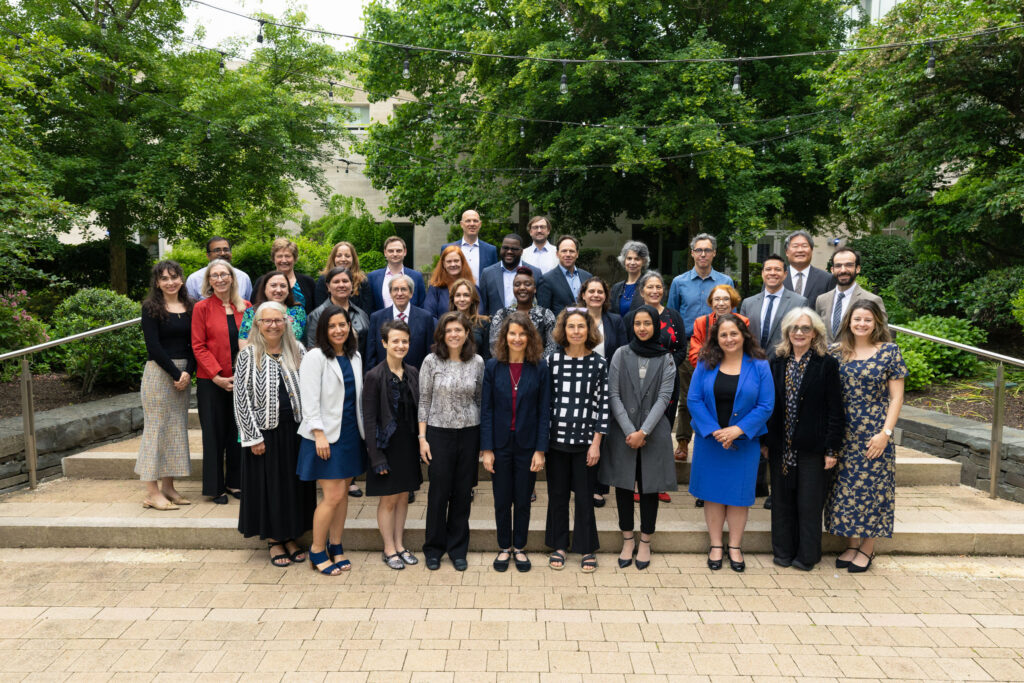
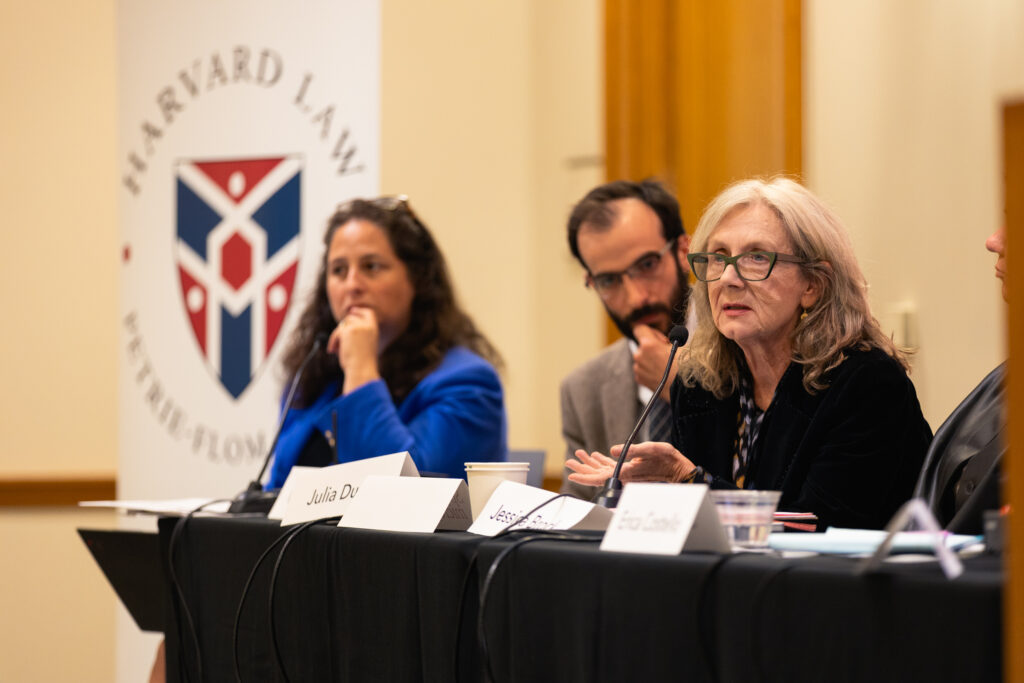
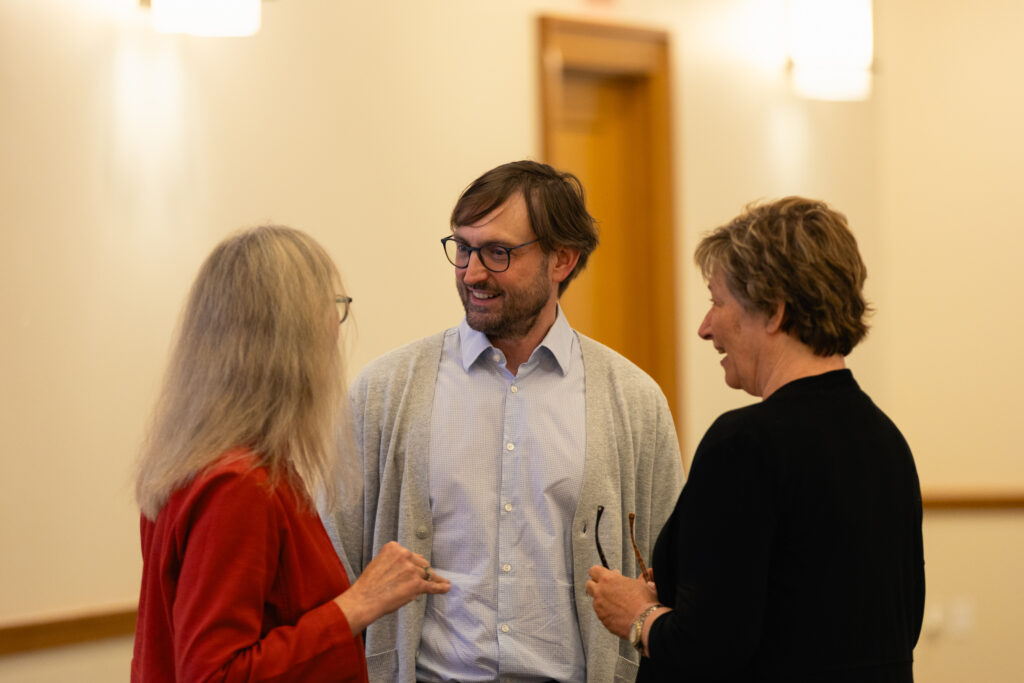
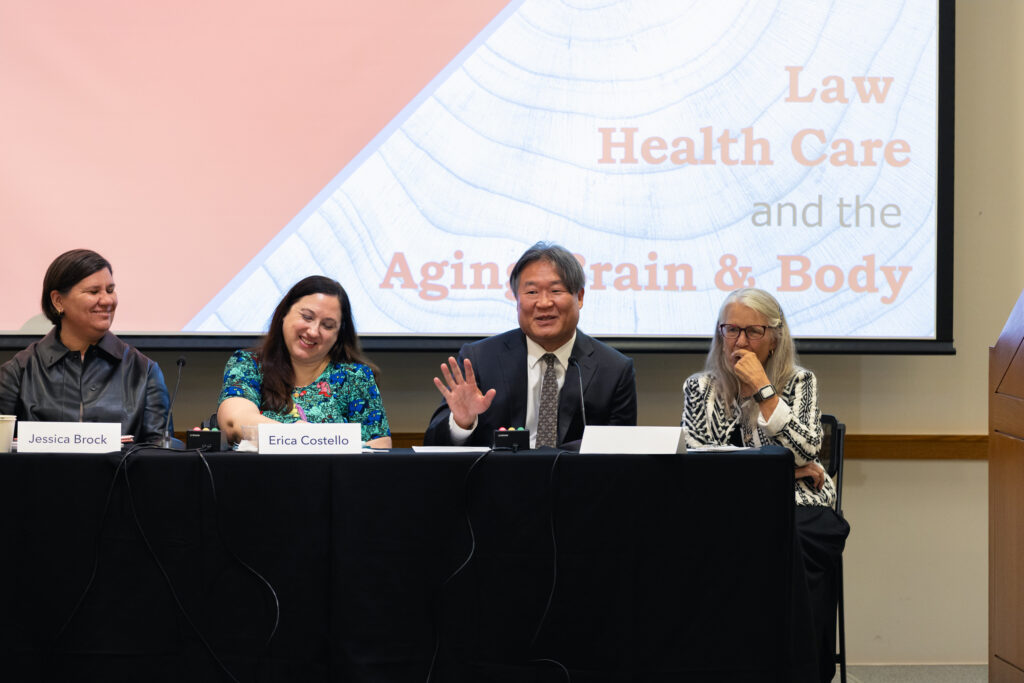

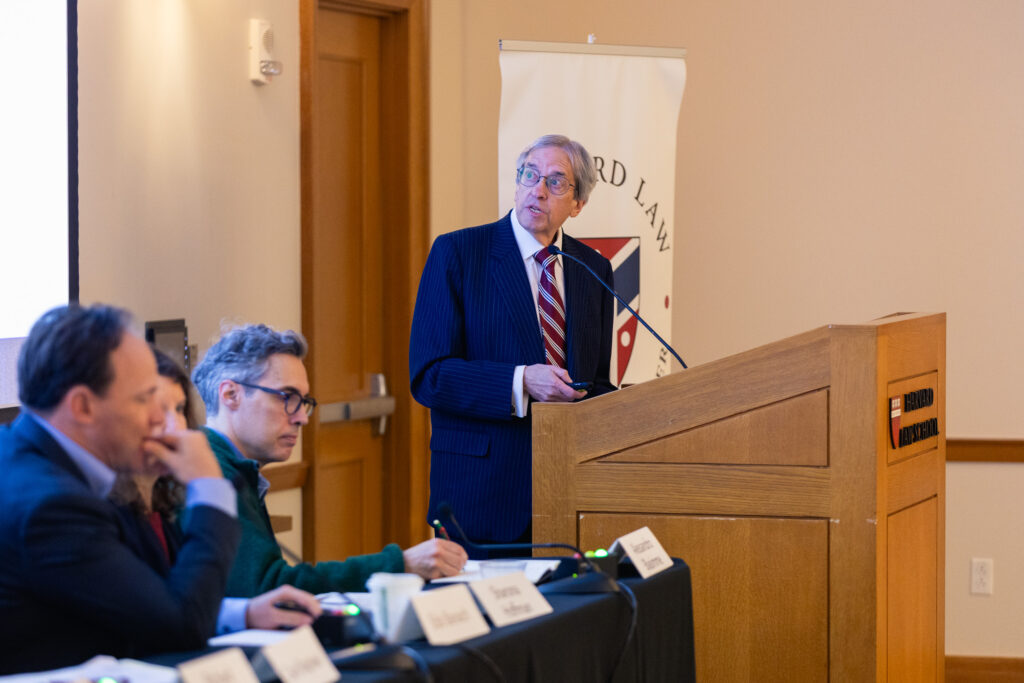
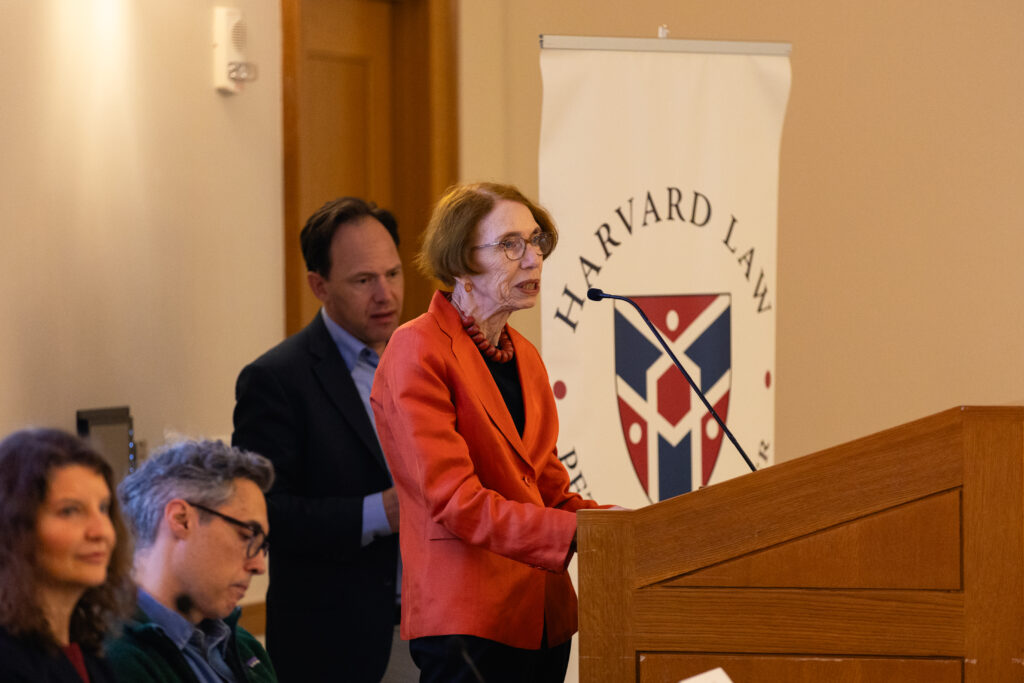
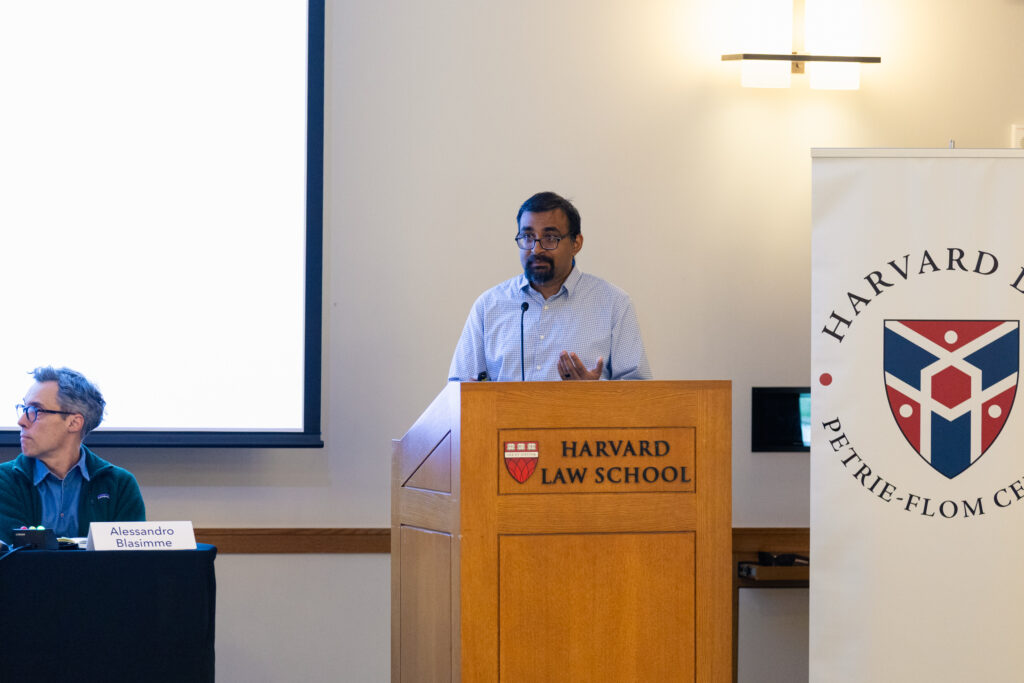
Sponsored by the Petrie-Flom Center for Health Law Policy, Biotechnology, and Bioethics at Harvard Law School with support from the Oswald DeN. Cammann Fund at Harvard University.